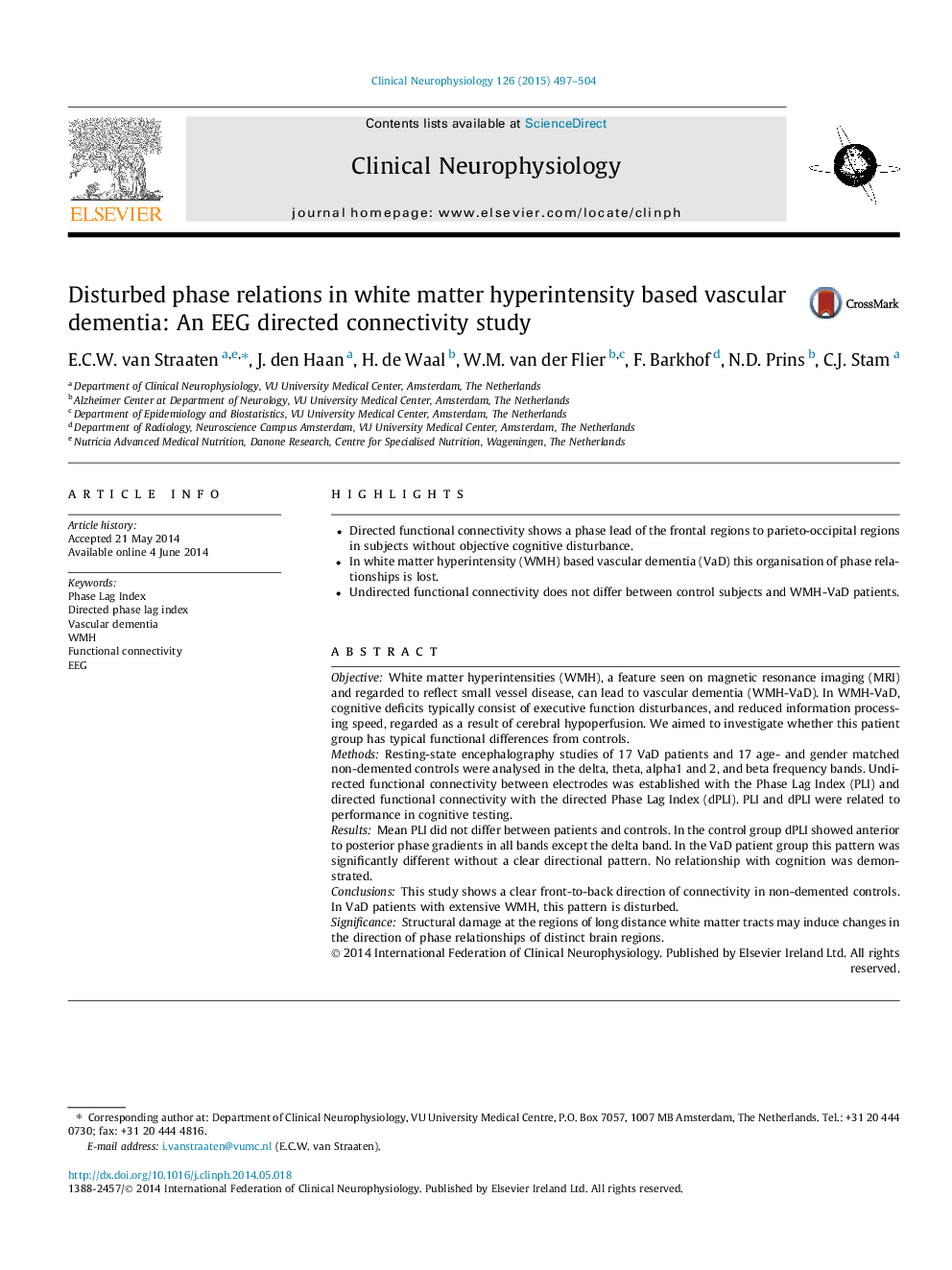| Article ID | Journal | Published Year | Pages | File Type |
|---|---|---|---|---|
| 3043709 | Clinical Neurophysiology | 2015 | 8 Pages |
•Directed functional connectivity shows a phase lead of the frontal regions to parieto-occipital regions in subjects without objective cognitive disturbance.•In white matter hyperintensity (WMH) based vascular dementia (VaD) this organisation of phase relationships is lost.•Undirected functional connectivity does not differ between control subjects and WMH-VaD patients.
ObjectiveWhite matter hyperintensities (WMH), a feature seen on magnetic resonance imaging (MRI) and regarded to reflect small vessel disease, can lead to vascular dementia (WMH-VaD). In WMH-VaD, cognitive deficits typically consist of executive function disturbances, and reduced information processing speed, regarded as a result of cerebral hypoperfusion. We aimed to investigate whether this patient group has typical functional differences from controls.MethodsResting-state encephalography studies of 17 VaD patients and 17 age- and gender matched non-demented controls were analysed in the delta, theta, alpha1 and 2, and beta frequency bands. Undirected functional connectivity between electrodes was established with the Phase Lag Index (PLI) and directed functional connectivity with the directed Phase Lag Index (dPLI). PLI and dPLI were related to performance in cognitive testing.ResultsMean PLI did not differ between patients and controls. In the control group dPLI showed anterior to posterior phase gradients in all bands except the delta band. In the VaD patient group this pattern was significantly different without a clear directional pattern. No relationship with cognition was demonstrated.ConclusionsThis study shows a clear front-to-back direction of connectivity in non-demented controls. In VaD patients with extensive WMH, this pattern is disturbed.SignificanceStructural damage at the regions of long distance white matter tracts may induce changes in the direction of phase relationships of distinct brain regions.
